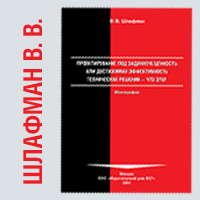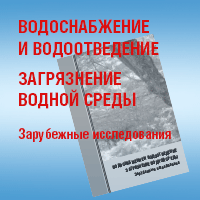№12|2019
WASTEWATER SLUDGE TREATMENT
DOI 10.35776/MNP.2019.12.04
UDC 628.336.3
Technological aspects of dewatering sludge of industrial-storm
wastewater of motor transport enterprises
Summary
Information on the conditions of generation, volumes, chemical composition and properties of sludge generated at the industrial wastewater treatment facilities of motor transport enterprises is provided. Examples of process engineering solutions for dewatering sludge generated during the wastewater treatment process are given. The technological aspects of enhancing mechanical dewatering of thickened sludge using high-molecular polyelectrolytes are considered. The data of laboratory experiments on choosing the type of flocculant, its dose, technological parameters of the process, as well as the results of determining the moisture content of dewatered sludge obtained in a model of a drum vacuum filter are presented. Examples of effective domestically produced dewatering apparatus and their technical characteristics, recommendations and criteria for their selection, as well as factors influencing the operational parameters of the dewatering equipment are given. It is found that the highest dewatering capacity of drum vacuum filters (residual sludge moisture content from 66 to 83%) can be achieved by using VPK-402 cationic flocculant for processing sludge generated at the workshop premises of a motor transport enterprise.
Key words
technogenic pollutants , local treatment facilities , industrial stormwater runoff , motor transport enterprises , drum vacuum-filter , high-molecular flocculant , equipment for mechanical sludge dewatering
Скачать/download (PDF) free access







